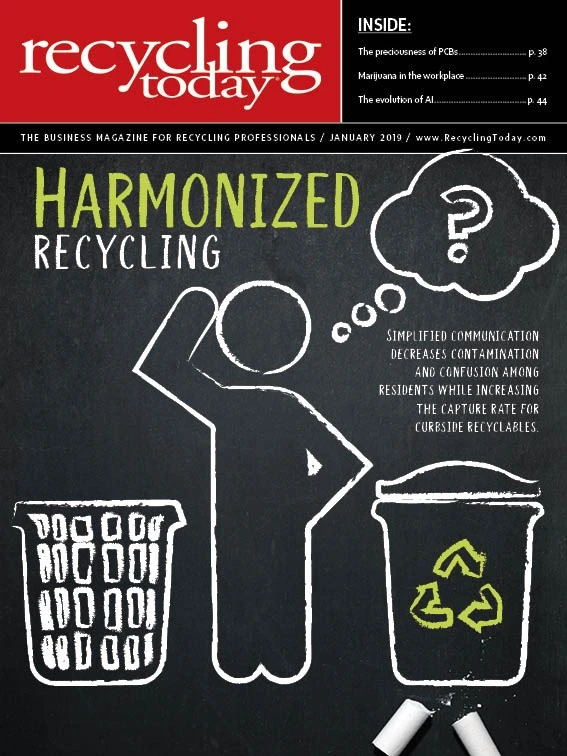The Oregon Department of Environmental Quality (DEQ) has proposed issuing a solid waste material recovery facility (MRF) permit to Georgia-Pacific Toledo LLC, Toledo, Oregon, part of Atlanta-based Georgia-Pacific (GP).
The proposed recycling plant, called the GP Toledo Material Recovery Facility, seems to be equipped to further GP’s research into its Juno technology, which is being designed in part to recover and consume mixed paper.
The company’s proposed facility will be located at GP Toledo’s paper mill in Toledo, according to a request for comments document issued by the Oregon DEQ Nov. 26, 2018.
The system deployed by GP “will test and demonstrate a new technology with the ability to recover recyclables from solid waste otherwise destined for landfills,” the DEQ document states.
“The system utilizes a proprietary process that sanitizes the feedstock and separates paper fiber from the other commodities inherent to the feedstock stream,” the DEQ document continues. “The fiber will be recycled for use in the Toledo mill's containerboard production, and other key recyclables from the feedstock will be diverted to recycling outlets. All remaining solid waste will be sent to an off-site permitted disposal site.”
The permit prohibits the acceptance of certain materials in the facility, including used tires, certain electronic devices, lead-acid batteries and used oil.
The comment period closed Dec. 26, 2018.
FCC receives 3 new contracts in Texas

FCC Environmental Services, the U.S. subsidiary of the environmental services division of FCC Group, Madrid, has been awarded three new contracts in the state of Texas, increasing the company’s order book by $7 million (6.12 million euros), according to a news release from FCC.
To date, FCC has signed 10 contracts with municipalities in the state of Texas and two with municipalities in Florida, for a total of 12 contracts in the U.S.
The first of the recent contracts in the state of Texas includes the management of all the biosolids for the city of Garland’s water treatment system, including transportation to the city landfill.
The second award signed by FCC, also with the city of Garland, is for the processing and marketing of recyclables for the Garland Independent School District, which encompasses a total of 68 schools and more than 56,000 students.
With 235,000 inhabitants, Garland is one of the 10 most populated cities in the Dallas-Fort Worth metropolitan region. Since 2016, FCC has managed all the recyclables generated by Garland residents—approximately 10,000 tons per year—which are processed at the recycling facility FCC developed in the city of Dallas.
FCC also has been awarded the contract to process all recyclables from the city of Lewisville, Texas, for a term of nine years, including extensions. With a population of 106,000, Lewisville is one of the fastest growing cities in north Texas, FCC says. Through this agreement, FCC will recycle and market all recyclables for the city, which amount to approximately 5,500 tons per year. FCC will process the collected material at its material recovery facility (MRF) in Dallas.
FCC’s Dallas MRF was named Recycling Facility of the Year in 2017 by the National Waste & Recycling Association, Arlington, Virginia.
FCC’s newest recycling facility in Houston will have a capacity of 145,000 tons per year and is expected to begin operations by March 2019, according to the company. FCC says it has a 15-year contract with the city of Houston and has accumulated a total order book value of more than $900 million in the U.S., serving more than 8 million Americans.
Get curated news on YOUR industry.
Enter your email to receive our newsletters.
Explore the January 2019 Issue
Check out more from this issue and find your next story to read.
Latest from Recycling Today
- ReMA opposes European efforts seeking export restrictions for recyclables
- Fresh Perspective: Raj Bagaria
- Saica announces plans for second US site
- Update: Novelis produces first aluminum coil made fully from recycled end-of-life automotive scrap
- Aimplas doubles online course offerings
- Radius to be acquired by Toyota subsidiary
- Algoma EAF to start in April
- Erema sees strong demand for high-volume PET systems





